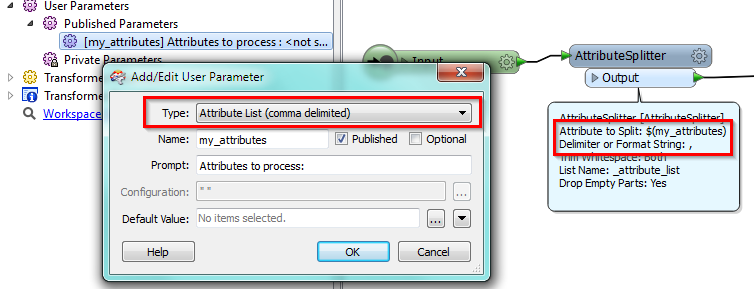We are 2 guys and want to create some work bench to handle dozen of different data from dozen of different DB (btw the purpose is to create some XML and populate a single common DB with all this data ).
The thing is we also want some "end user" to be able to write some work bench.
Actually we have made ~30 custom transformer (CT) already (all are linked)
Here is our question:
What is the best way to specify (or not) CT parameters ?
1_ copy feature attribute in CT parameters and add a AttributeCreator from parameters to feature attribute.
We thinks it's a bit ugly, but the clearer for the end user: specify what we expect.
2_assume the feature have an attribute called "foo" and handle it that way ... and let the user deal with errors if his feature are missing attributes.
3_?? we don't know how to say "we want a feature with 'foo' and 'bar'".




